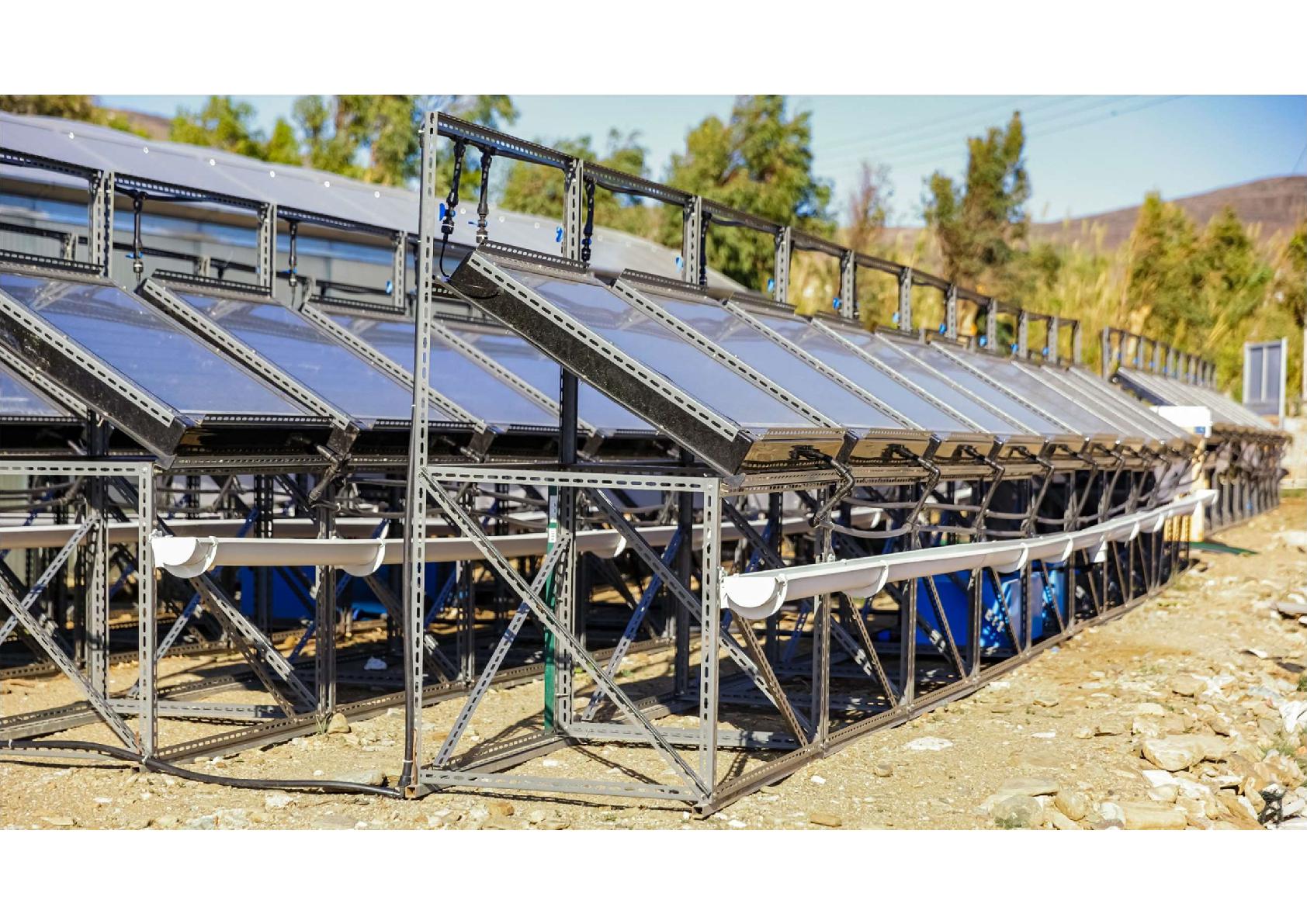The Mangrove Technology Platform (MTP) empowers tree planting in arid regions through desalination, fostering small-medium scale carbon farming without intensifying the strain on fertile soil and freshwater already pressured by extensive food production.
Full description
The Mangrove Technology Platform is a modular system that integrates 3 core technologies:
Desalination module. A solar-powered unit that converts saltwater into freshwater. The module leverages the internal heat generated by the sun irradiation to evaporate the saltwater (seawater, brine, saline underground water), while the condensation phase is performed by a top layer of glazing. With an overall area of 40 m2 the passive design version is able to produce 200-250 l per day (for an average of 10 hours running).
Salt factory. Conventional brine management practices, which often involve mere discharging, can have significant environmental impacts. The MTP completely avoids these impacts through an integrated forced ventilation salt production process, leading to a Zero Brine Discharge system and food-grade salt production.
Planting nest. A planting module made with organic material and mycelium to water the plants efficiently. It supports plants’ growth while saving up water, ensuring the tree establishment after transplant. Technological improvements have been planned on both desalination unit and mycelium-based planting module in order to continue their maturation towards, respectively TRL 9 and TRL 6. It will be useful to receive the support of the accelerator to look for other carbon/ecosystem regeneration projects and additional partners whose technologies could be functionally integrated in the MTP.
Desalination module. A solar-powered unit that converts saltwater into freshwater. The module leverages the internal heat generated by the sun irradiation to evaporate the saltwater (seawater, brine, saline underground water), while the condensation phase is performed by a top layer of glazing. With an overall area of 40 m2 the passive design version is able to produce 200-250 l per day (for an average of 10 hours running).
Salt factory. Conventional brine management practices, which often involve mere discharging, can have significant environmental impacts. The MTP completely avoids these impacts through an integrated forced ventilation salt production process, leading to a Zero Brine Discharge system and food-grade salt production.
Planting nest. A planting module made with organic material and mycelium to water the plants efficiently. It supports plants’ growth while saving up water, ensuring the tree establishment after transplant. Technological improvements have been planned on both desalination unit and mycelium-based planting module in order to continue their maturation towards, respectively TRL 9 and TRL 6. It will be useful to receive the support of the accelerator to look for other carbon/ecosystem regeneration projects and additional partners whose technologies could be functionally integrated in the MTP.
Value proposition
We keep the Earth habitable: provide freshwater, regenerate soil and clean air
Product dimensions:
2 (H) x 1 (L) x 1 (W) metres
Product pricing
Fixed price
- Pricing depending on specific customer demands
Product weight
15.00kg
Product material
Polycarbonate
Brochure or other document

